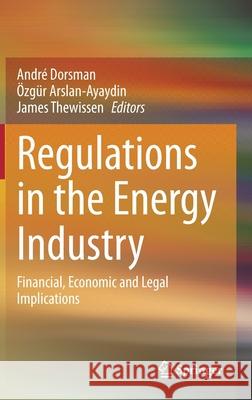Regulations in the Energy Industry: Financial, Economic and Legal Implications » książka
topmenu
Regulations in the Energy Industry: Financial, Economic and Legal Implications
ISBN-13: 9783030322953 / Angielski / Twarda / 2020 / 261 str.
Regulations in the Energy Industry: Financial, Economic and Legal Implications
ISBN-13: 9783030322953 / Angielski / Twarda / 2020 / 261 str.
cena 563,56
(netto: 536,72 VAT: 5%)
Najniższa cena z 30 dni: 539,74
(netto: 536,72 VAT: 5%)
Najniższa cena z 30 dni: 539,74
Termin realizacji zamówienia:
ok. 16-18 dni roboczych.
ok. 16-18 dni roboczych.
Darmowa dostawa!
Kategorie:
Kategorie BISAC:
Wydawca:
Springer
Język:
Angielski
ISBN-13:
9783030322953
Rok wydania:
2020
Wydanie:
2020
Ilość stron:
261
Waga:
0.55 kg
Wymiary:
23.39 x 15.6 x 1.6
Oprawa:
Twarda
Wolumenów:
01
Dodatkowe informacje:
Wydanie ilustrowane











